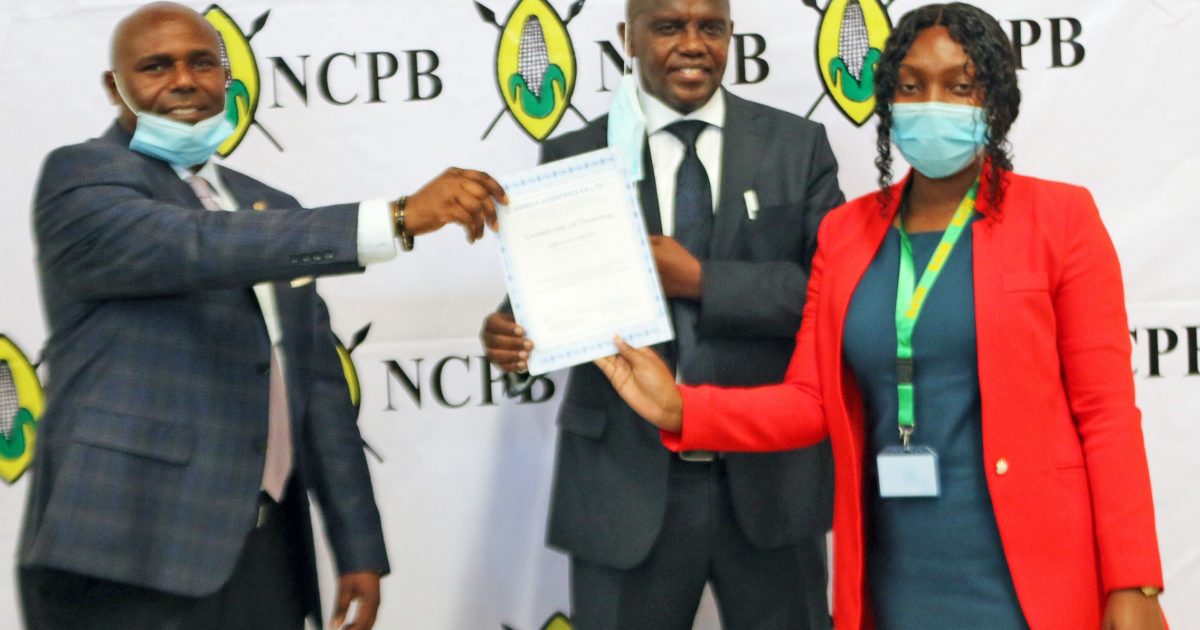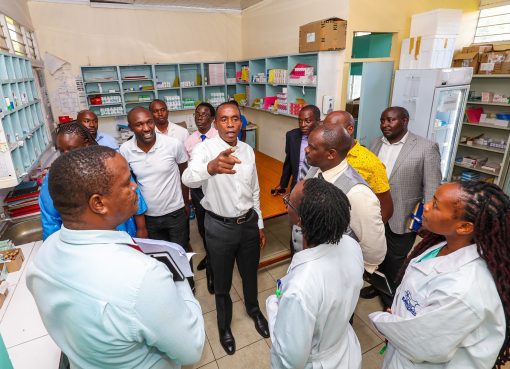The National Cereals and Produce Board (NCPB) on Thursday installed and commissioned five additional aflatoxin testing laboratories at their facilities.
The five will be in Meru, Eldoret, Machakos, Kitale and Nakuru, bringing to six, the number of aflatoxin testing laboratories in its network since initially there was only one in Nairobi.
The equipment installed uses the Elisa Test method and can test all mycotoxins that exist in grain and other foods.
NCPB Managing Director, Joseph Kimote said that the testing facilities are aimed at providing testing services to value chain actors who include farmers, traders, millers, among other stakeholders along the grains and pulses value chain so that they can ascertain and be assured of the quality of the grains they handle.
As part of launching of the testing services, the MD, yesterday at NCPB office in Nairobi, awarded certificates to NCPB staff who have been trained on aflatoxin testing and who will run the laboratories.
“Having experienced firsthand the ramifications of procuring aflatoxin maize, in terms of destruction of food and loss of funds, we want to prevent a recurrence of these incidences and ensure that the Kenyan consumer has access to clean and safe food for consumption,” Kimote said in his statement.
“The general public and all stakeholders including millers, grain processors, traders, institutions and farmers have been invited to use these services which will be charged at a fee of Ksh1,740 (VAT inclusive) per sample,” he said.
Aflatoxin poison contamination can increase during post-harvest activities such as processing, transport and storage thus it will be minimal because of additional laboratories.
Various foods susceptible to contamination with aflatoxins include cereals, oil seeds, pulses, root crops, vegetable products and beverages.
In support of efforts towards reducing post-harvest losses occasioned by aflatoxin contamination, NCPB will also be distributing Aflasafe to farmers for use to control the fungal infection while the crop is in the field and also offer post-harvest management services including drying and safe storage to preserve the quality of the grains.
By having the aflatoxin testing labs NCPB has increased its support of Government efforts towards reducing post-harvest losses and promoting trade in safe food as envisaged in the National Food Safety Policy.
Prevention measures can be implemented at two phases of the crop production cycle, that is at preharvest phase; that is applying Aflasafe after planting when the crop is in the field, and at post-harvest phase ensuring the harvest is properly dried and stored in a well-ventilated area.
In attendance was Peter Mutuku, the Managing Director of Sorela Suppliers (Ltd), the company that was contracted by NCPB to install the laboratory testing kits and also train the Quality Control Officers.
“Sorela Suppliers has partnered with Eastern Africa Grain Council (EAGC) and other major organizations in the food processing and agricultural research institutions in developing harmonized aflatoxin testing methods, namely the Elisa Test Method in the region,” Mutuku said.
Sorela are major suppliers of aflatoxin testing and other laboratory equipment in East Africa from internationally renowned manufacturers.
By Wangari Ndirangu





